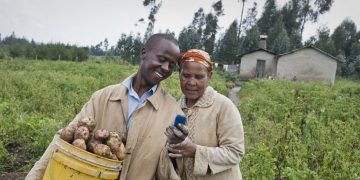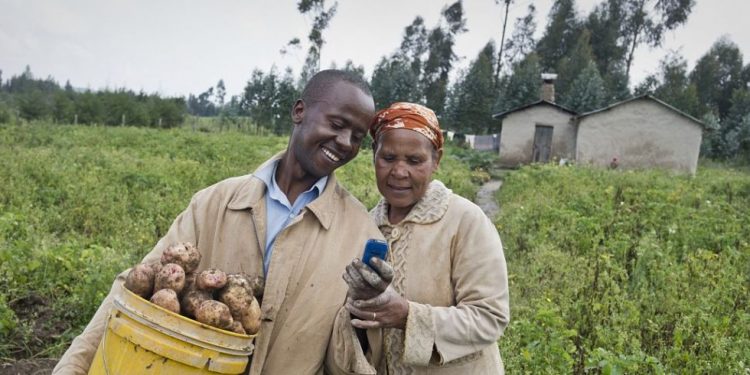#farming #agriculture #climateresilience #organicfarming #circularagriculture #aquaculture #solar-poweredequipment #regenerativetechniques #covercrops #sackgardensagroforestry #Kenya, industrialagriculture #climatechange
Explore how Kenyan farmers are navigating the challenges posed by industrial agriculture and climate change. Discover the power of organic farming and innovative techniques that reduce input costs, conserve water, and increase profits. Join Kate Schecter, CEO of World Neighbors, and Dr. Chris Macoloo, a renowned agricultural expert, on their visit to Kisumu and Busia to witness the transformative impact of sustainable agriculture.
Kenya’s family farmers face a dual challenge: the encroachment of industrial agriculture and the escalating impacts of climate change. As land competition intensifies and input costs soar, communities in Kisumu and Busia are turning to organic agriculture as a solution. Through the adoption of inexpensive yet effective innovations, these farmers are revolutionizing their farming practices, enhancing productivity, and securing their livelihoods. In this article, we delve into the cutting-edge techniques that are enabling Kenyan farmers to thrive amidst adversity.
Circular Agriculture/Aquaculture: A Sustainable Synergy
Circular agriculture and aquaculture represent a dynamic approach to farming that fosters ecological harmony and maximizes resource efficiency. By harnessing the symbiotic relationship between crops and aquatic life, farmers in Kenya are reaping significant benefits. According to recent data from the Ministry of Agriculture, this integrated system has shown promising results, such as increased crop yields and reduced water consumption, while simultaneously providing an additional source of income through aquaculture.
Solar-Powered Water Pumps and Sustainable Equipment
In regions where access to electricity is limited, solar-powered water pumps and other sustainable equipment are revolutionizing farming practices. These innovations enable farmers to efficiently irrigate their fields, enhance water management, and reduce dependence on fossil fuels. Notably, a study conducted by the Kenyan Institute of Organic Farming revealed that the adoption of solar-powered water pumps led to a 30% increase in crop yield and a significant reduction in production costs.
Regenerative Techniques and Cover Crops
Regenerative farming techniques, including the use of cover crops, are increasingly gaining popularity among Kenyan farmers. By planting cover crops during fallow periods, farmers can improve soil health, prevent erosion, and suppress weed growth. Recent findings from the Kenya Agricultural and Livestock Research Organization (KALRO) demonstrate that regenerative techniques, coupled with cover cropping, have led to a remarkable 40% increase in overall farm productivity.
Sack Gardens: Cultivating in Small Spaces
In urban and densely populated areas, sack gardens have emerged as a game-changer for small-scale farming. By repurposing sacks as portable gardens, farmers can optimize space and grow a variety of vegetables. These mini-gardens require minimal water and can be easily moved to take advantage of sunlight. A study conducted by the International Center for Tropical Agriculture (CIAT) revealed that sack gardens have the potential to increase vegetable production by up to 50% within limited spaces.
Agroforestry: A Green Solution for Climate Resilience
Agroforestry, the integration of trees into farming systems, is proving to be a powerful strategy for enhancing climate resilience. By planting trees alongside crops, farmers can mitigate the impacts of extreme weather events, improve soil fertility, and diversify income streams. According to the World Agroforestry Centre (ICRAF), agroforestry practices have resulted in a 25% increase in crop yields and a significant reduction in greenhouse gas emissions.
Kenya’s family farmers are embracing the challenges posed by industrial agriculture and climate change head-on through innovative organic farming practices. By adopting circular agriculture/aquaculture, utilizing solar-powered equipment, implementing regenerative techniques and cover crops, cultivating sack gardens, and embracing agroforestry, these farmers are building climate resilience, reducing input costs, and increasing their profits. The transformative impact of these sustainable practices is evident in the thriving communities of Kisumu and Busia.
As Kate Schecter, CEO of World Neighbors, and Dr. Chris Macoloo, an esteemed agricultural expert, embark on their visit to Kenya, they will witness firsthand the success stories and inspiring efforts of these farmers. The journey to a sustainable and climate-resilient agriculture sector in Kenya is well underway, and it serves as a beacon of hope for farmers across the country and beyond.































